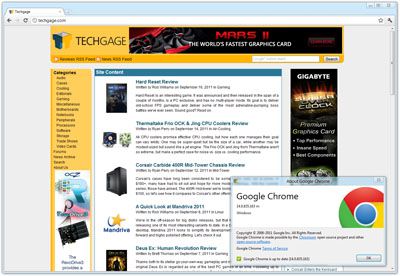One would expect that the initial offerings for testing NaCI usefulness weren't entirely based on games. Because quite frankly I don't see where that helps, other than perhaps pushing the technology through the least likely community to question it. And I don't say that in a bad way. It's just that gamers aren't really that interested in NaCI technological achievements as a gaming platform. They'll most likely welcome HTML 5 achievements in the web browser games arena.
Instead, NaCI needs to prove its mettle in the business arena, where web browser based application serving is more likely to make a dent. And here the problem is real; NaCI is a proprietary technology that is bound to segment the market, when there's already a working draft by a standards body. I've read -- and read, and read -- Google's argument for its existence. And I just cannot become convinced we need NaCI. In fact Google has been for some years now slowly constructing its own ivory tower based on a "not invented here" complex. I don't know when or how it started, but since its abandonment of the Mozilla project and the Chrome browser itself, this behavior has becoming more clear and it frankly scares me.
Thankfully, Google seems way too late -- and doesn't dominate its market segment enough -- to play the proprietary game like Apple or Microsoft. It always feels to me Google is desperate to gain a footing (any footing!) in the business of widely adopted proprietary technologies. Even its WebM attempt (which is actually one of the few technologies of them I support, giving that the H.264 alternative is so much more dangerous in my opinion) is an example of this. And then there's Android, which Google insists on calling Open Source, while being anything but.
It pains me to no end -- you guys believe me it does -- seeing such a brainy company bent on moving itself further and further away of open standards and technologies it doesn't control. And it surely paints a whole different company from what was its announced doctrine some 12 years ago. Or was all of that back then just marketing fluff? Perhaps it was.


